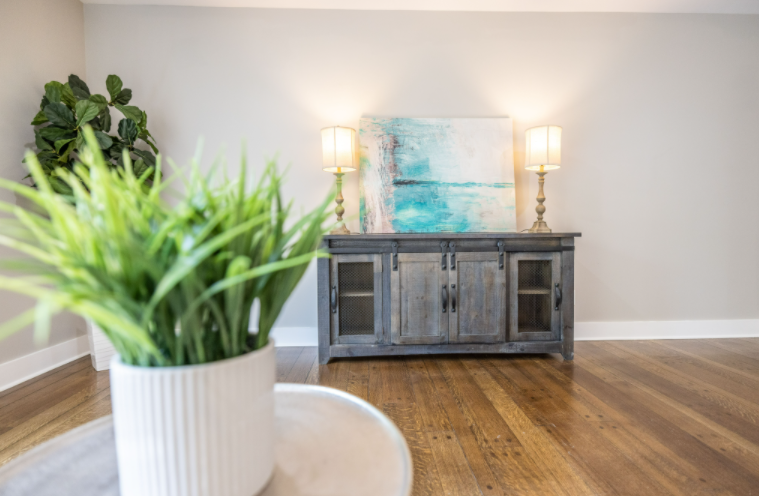|
When you’re staging your home for sale, it can be hard to know exactly what steps to take. A professional stager can be an invaluable resource—a wealth of information, materials, and knowledge—but as you watch the stager at work, you might find that you have some questions, maybe even wonder what exactly is the point of staging houses for real estate? The house, after all, retains the same structure—sometimes, the stager might even use furniture that is already there. How can the stagers' adjustments have such a big impact on eventual sale success? The next time you’re wondering about staging—whether it’s worth it, why it’s so useful, or why your stager made certain changes—try this comparison on for size: home staging is like a job interview. While the two might seem very different, the similarities get more apparent the more you think about them. Try to remember the last time you went for an interview—remember everything from what you wore, to how much you prepared to know exactly how you were going to answer each question. And then think about how you actually answered those questions. Maybe, for example, you put on a nice suit or blouse, and also got up in time to have a healthy breakfast and review your research—the information you found about the organization, your list of questions for the interviewer, or your organized thoughts for common questions. For the interview, you prepared--and this is something that you’ll also see in home staging. While getting ready for an interview, your preparation might involve thinking up intelligent answers to questions like, “tell me about yourself”. Preparation in home staging can also go a long way to getting you set up for success. When staging, you’ve probably cleaned and gotten lots of deferred maintenance done—helping your home to be dressed for success, just like you. When interviewing, you probably know that this is not the time to share your full life story. Lots of personal life information or lots of complaints about your old job is a no-no!. All this extra information might distract from your strengths—and even leave the interviewer with a bad impression. When home staging, you can also see this kind of paring down—the stager might need to remove personal accessories and photos and will emphasize the importance of making the home clean and clear of clutter. So when you’re staging a kitchen or staging a bathroom for sale, you’ll empty trash cans and put away any personal items like your toothbrush, hair brush, makeup, deodorant ...you get the idea. These things aren’t secrets—your buyer knows that you have to brush your teeth!—but packing them away helps the buyer see themselves living there and focus on the parts of the house that they’re interested in at that moment, like counters and space. The buyer will one day have toothbrushes and personal items in the house—just like one day you’ll put personal items on your desk or tell coworkers about your family—but during an interview or when staging, it helps to keep everyone focused on the goal. That’s not the same thing as lying, of course—something you’re careful to avoid in both home staging and an interview. Neither aims to put forward something that isn’t true. When interviewing, you don’t say you have skills or experience that you don’t really have, and when staging, you aren’t trying to trick the buyer into thinking that problems that exist with your house aren’t really there. In fact, in an interview the interviewer might ask directly about weaknesses—something that buyers might ask about a house, too. Buyers have a list of criteria, like the person hiring you might, and your house works like a resume – showing off what’s there and how other strong points can compensate for ‘weaknesses’. Think of how you might answer that question about your personal weaknesses in an interview: you might share a few of them, but also provide examples of how you’re trying to improve—emphasizing your strengths. Staging will help emphasize the strengths of your home. So when staging a small bedroom, its size might be a weakness—and staging cannot give it more square footage, but it can emphasize large windows with natural light that make the room seem bigger and help the buyer emotionally connect with the space. Similar to an interview, home staging preparation will help you get your best results and if you’re wondering where can I get help staging my house for sale? Heidi Ross Design is here to help you in Germantown, Memphis, and Collierville. We help clients in the Greater Mid-South sell their luxury homes. Whether you’re looking for staging services for an occupied or vacant home, we’re here to help you take all the steps needed to get your best sale results. Give us a call at (901) 361-7419 or use our FREE ONLINE QUOTE form and get started today. Please be advised that all content, including Blog articles, on the website https://www.heidirossdesign.com is for INFORMATIONAL PURPOSES ONLY. THE INFORMATION INCLUDED IN OR AVAILABLE THROUGH THE SITE MAY INCLUDE INACCURACIES OR TYPOGRAPHICAL ERRORS. No guarantees are made and the use of the website, content, and any information provided is to be used at your own risk
0 Comments
Leave a Reply. |
|
Service Areas:
Memphis, Germantown, Cordova, Collierville, Bartlett, Lakeland, Millington, Oakland, Southaven, Olive Branch, Hernando and beyond. |
Copyright © 2024 Heidi Ross Design.
Website designed by Bailee Ross.
Website designed by Bailee Ross.

 RSS Feed
RSS Feed

